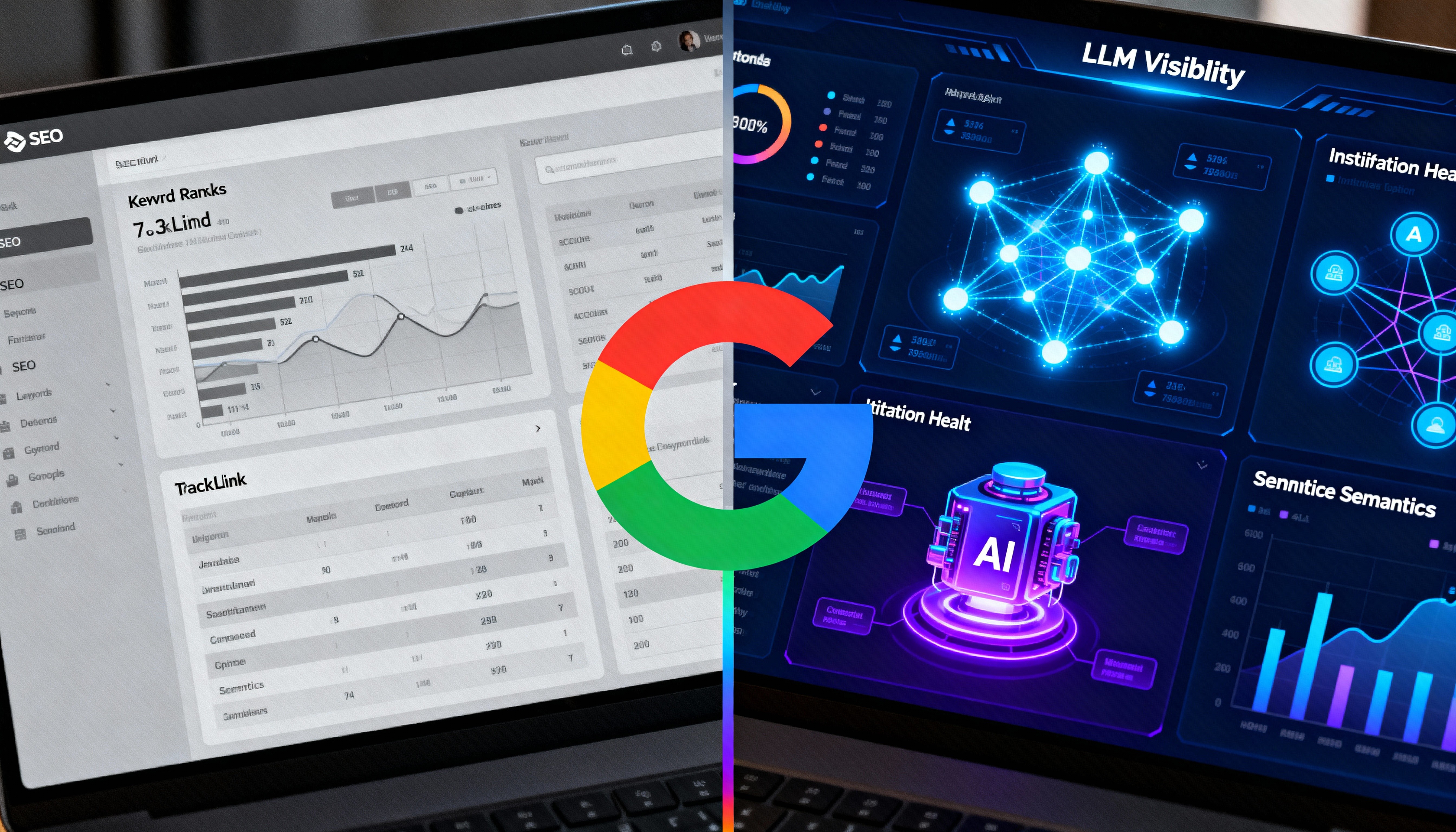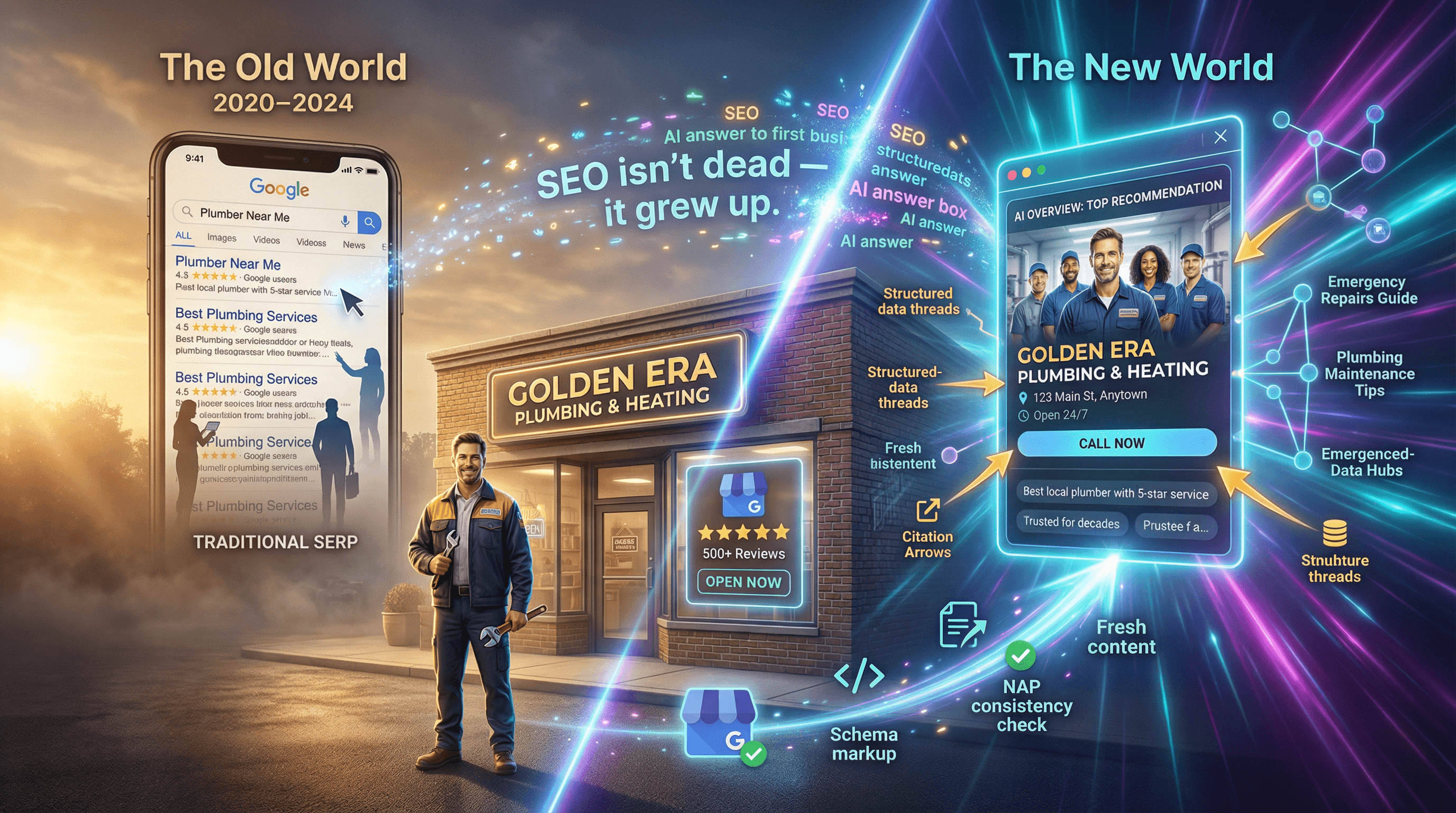Meta Ads
Navigate Meta's Andromeda update with this guide. Learn strategies for AI-driven ad delivery, campaign optimization, and future automation.
Meta Andromeda is here, and it's changing the game for advertisers. If your campaigns have felt a bit off lately, that's probably why. This isn't just a small update; it's a whole new engine powering Meta's ads. Think of it as a smarter, faster way for Meta to figure out who sees what. This guide is all about helping you get on board so your ads work better, not harder, in this new era.
Key Takeaways
Meta Andromeda is the new AI driving ad delivery, making it faster and more precise. It focuses on matching ads to people based on nuanced signals, not just broad categories.
To succeed, advertisers need to embrace broader targeting and let the AI do more of the segmentation work.
Creative diversity is now your main targeting tool. Focus on creating many different ad concepts that speak to various user needs and awareness levels.
Simplify your campaign structures. Fewer ad sets mean more data for the AI to learn from, leading to better performance.
Feeding Meta Andromeda clean, relevant data and focusing on business outcomes like profit and ROAS, rather than just clicks, is key to optimizing performance.
Understanding Meta Andromeda's Core Functionality

So, what exactly is this "Andromeda" everyone's talking about? It's not just a minor tweak; it's a pretty big overhaul of the AI that decides which ads you see on Facebook and Instagram. Think of it as a completely new engine under the hood of Meta's ad system. Before Andromeda, the system might have looked at broad categories to decide who sees an ad. Now, it's way more detailed.
The Engine Behind Ad Delivery
Andromeda is the first step in getting an ad in front of someone. It's not about ranking ads against each other yet. Instead, it's about pulling a potential list of ads that could be shown to a person at that exact moment. Imagine a massive library with millions of books (ads). When someone walks in, Andromeda quickly scans the shelves and pulls out a few thousand that might be a good fit based on that person's current context and interests. Only after Andromeda does its job do other systems figure out which one or two ads the person actually sees. If your ad doesn't even make that initial shortlist, it never gets a chance to compete in the auction. This initial retrieval step is where Meta Andromeda really shines, making the whole process smarter and faster.
From Broad Categories to Nuanced Matching
This is where things get interesting. Andromeda is moving beyond just matching broad interests, like "people who like shoes." It's getting much more specific, understanding things like "people who like red flip-flops when they're planning a beach trip." It uses all sorts of signals – past behavior, what's happening right now, and even the content of the ad itself – to find those subtle connections. This means ads can become much more relevant to individuals, even if you're not manually targeting every single detail.
How Andromeda Influences Ad Visibility
Because Andromeda is so good at finding nuanced matches, it directly impacts whether your ad gets seen. If you feed the system clear goals and diverse creative options, Andromeda is more likely to put your ad on those initial shortlists. It's designed to work across different placements, from Stories to Reels, finding the right person at the right time.
Clear Objectives: Tell the AI exactly what you want to achieve.
Clean Data: Provide accurate conversion signals so the AI learns correctly.
Diverse Creatives: Offer a variety of ad formats and messages.
The old way of hyper-segmenting audiences and relying on manual targeting tricks is becoming less effective. Andromeda favors a broader approach, letting the AI do the heavy lifting in finding the right people.
Essentially, Andromeda is the gatekeeper. If your ad makes it through this initial, highly intelligent retrieval process, it has a much better shot at being seen and performing well. It's all about giving the AI the right information to make those initial, critical decisions.
Adapting Your Strategy for Andromeda's AI
So, Meta's Andromeda update is here, and it's a pretty big deal for how ads get shown. Forget the old ways of slicing and dicing audiences into tiny groups. Andromeda is all about letting the AI do the heavy lifting, and that means we need to adjust how we approach our campaigns. It's less about being a targeting wizard and more about being a creative director and a smart data provider.
Embracing Broad Targeting
This is probably the biggest shift. Instead of trying to guess who might be interested, we're now encouraged to cast a wider net. Think of it like this: you're not trying to find a specific needle in a haystack anymore; you're making the haystack itself more likely to attract the needles. Using Advantage+ campaigns or simply setting your audience to broad with minimal restrictions allows Andromeda to explore and find pockets of high-intent users that we might not have discovered on our own. It feels a bit counterintuitive at first, especially if you're used to detailed audience building, but it's about trusting the AI's ability to process more signals than we ever could. We're not being lazy; we're giving the system room to work its magic. Just remember to use "smart exclusions" – like excluding past purchasers when you're looking for new customers – to keep the system focused on the right goals.
Creative Diversity as the New Targeting
If Andromeda is the engine matching people to messages, then your ads are now your primary targeting tool. This means we need a lot more variety in our creative assets. It's not about making ten slightly different versions of the same ad; it's about creating distinct messages that speak to different needs, desires, and awareness levels of potential customers. Think about mapping out your creatives based on different personas, what they want most, and where they are in their buying journey. This approach helps Andromeda find the best match for each individual user, making your ads more relevant and effective. A good way to think about this is to have a mix of creatives that cover:
Persona: Who are you talking to? (e.g., budget-conscious parent, student, busy professional)
Desire: What do they want? (e.g., save money, look good, save time)
Awareness: How much do they know? (e.g., problem-aware, solution-aware, product-aware)
By covering these bases, you're essentially providing Andromeda with a richer palette to work with, leading to better ad performance across the board. This is a big change from the old days where you could spend ages tweaking audience settings. Now, the creative is king [c34d].
Simplifying Campaign Structures
With Andromeda, the trend is definitely towards simpler campaign structures. The old method of creating dozens of ad sets, each with a specific audience and a single ad, is becoming outdated. Splitting your budget and learning across too many ad sets can actually hinder the AI's ability to optimize effectively. Instead, consolidating into fewer, broader campaigns with robust creative diversity is the way to go. This allows the AI to gather more data within a single learning phase, leading to faster optimization and better overall performance. Think of it as feeding one large, healthy learning engine rather than ten small, undernourished ones. This simplification also frees up our time to focus on higher-level strategy, like defining clear business goals and analyzing performance, rather than getting bogged down in the minutiae of campaign setup.
The core idea is to shift from manually controlling every aspect of ad delivery to providing the AI with the best possible inputs and letting it optimize. This means focusing on what truly matters: clear business objectives, high-quality creative assets, and clean data signals. The AI handles the complex matching and optimization, allowing us to concentrate on strategy and creative direction.
Optimizing Performance with Andromeda
So, you've got a handle on what Andromeda is and how it works. Now, let's talk about making your campaigns actually perform better. It’s not about outsmarting the AI; it’s about feeding it what it needs to succeed. Think of it like giving a super-smart assistant all the right tools and information so they can do their best work for you. The goal is to align your strategy with how Andromeda learns, not to fight against it.
Focusing on Business Outcomes
Forget about just looking at clicks or impressions. Those are surface-level metrics. Andromeda needs to know what real success looks like for your business. If you're selling something, optimize for purchases, not just people clicking a link. If you're generating leads, make sure you're tracking qualified ones, not just any name that pops into your inbox. This tells the AI exactly who to look for.
Here's a quick breakdown of what to track:
Sales-focused: Optimize for the 'Purchase' event. Pass the actual value of the purchase and currency. This is the gold standard for e-commerce.
Lead-focused: Aim for 'Qualified Lead' or a similar downstream event that signifies real interest. If possible, pass lead quality scores.
App installs: Track 'App Install' and, if you can, in-app actions that lead to revenue.
Relying on weak signals like 'View Content' or 'Link Click' trains Andromeda to find cheap traffic, not actual customers. You're essentially telling it to find people who might be interested, instead of people who will buy.
Feeding Andromeda Clean and Relevant Data
This is huge. Andromeda learns from the data you give it. If that data is messy, incomplete, or inaccurate, the AI will make bad decisions. You need to make sure your tracking is set up correctly. That means:
Pixel and Conversions API (CAPI): Don't just rely on the browser pixel. Set up CAPI so your server or CRM sends data directly to Meta. This is way more reliable, especially with privacy changes. It gives Andromeda a clearer picture.
Deduplication: Make sure you're not sending the same conversion event multiple times. This messes with the AI's understanding of what's working.
Accurate Values: Always pass the correct purchase values and currency. For leads, pass quality scores if you have them. This helps Andromeda understand the worth of a conversion.
Protecting the AI's Learning Phase
When you launch a new campaign or make significant changes, Andromeda needs time to learn. This is its 'learning phase'. Messing with things too much during this period can reset the process and hurt performance. What does this mean for you?
Resist Fragmentation: Try to keep your campaign structures simple. Too many ad sets split the learning data and budget, making it harder for Andromeda to find patterns. Consolidate where you can.
Avoid Constant Edits: Don't tweak ads or audiences daily. Batch your changes, maybe twice a week, to give the AI some stability.
Budget Stability: While you want to scale, avoid drastic budget cuts or increases. Gradual adjustments are better. If you're testing new creatives, make sure they have enough budget to get seen and provide data.
By focusing on these areas, you're not just running ads; you're building a system that works with Meta's AI, leading to more consistent and profitable results. It’s about being a good data steward for the machine. Learn more about Meta's AI.
The Future of Campaign Automation

It feels like just yesterday we were all painstakingly building out dozens of interest-based audiences, right? Now, Meta is pushing us further down the road of automation, and honestly, it's a good thing. The Andromeda update is just the latest step in a bigger plan to make running ads way simpler, focusing on what you actually want to achieve rather than the nitty-gritty details of how to get there.
The Rise of Goal-Only Campaigns
Imagine a world where you only need to tell Meta what you want to accomplish. That's the idea behind goal-only campaigns. You'd essentially provide:
Your main business objective (like selling a specific product or getting a certain number of sign-ups).
Your budget and the timeframe you're working with.
A collection of your best creative assets – photos, videos, text.
That's it. The AI would then take over, figuring out the audiences, the bidding, and all the other technical stuff to hit your target. It's about shifting your role from a campaign manager to more of a strategic director.
This move towards goal-only campaigns isn't about removing the advertiser from the process; it's about freeing them up from repetitive tasks to focus on higher-level strategy and creative direction. The system handles the 'how,' so you can focus on the 'what' and 'why.'
Leveraging Meta Business AI
To make these goal-only campaigns a reality, Meta is building out its Business AI tools. Think of it as a smart assistant that helps you create and manage your campaigns. Instead of clicking through endless menus in Ads Manager, you might just type a request, like "Create a campaign to promote our summer sale to people in California, aiming for purchases, with a $50 daily budget." The AI would then draft a campaign for you to review and approve. It's designed to simplify the whole ad creation process, making it more accessible and less time-consuming.
Evolving Skillsets for Media Buyers
So, what does this mean for us? The days of being a dashboard jockey are fading. The skills that will matter most are:
Strategic thinking: Understanding your business goals and how advertising fits into the bigger picture.
Creative direction: Knowing what makes good ad creative and how to guide the AI to produce effective assets.
Data interpretation: Being able to look at the results and understand what they mean for your business, even if the AI is doing the heavy lifting.
Problem-solving: When things don't go as planned, being able to diagnose issues and adjust strategy, rather than just tweaking settings.
It's a shift from tactical execution to a more analytical and creative role. The platform is getting smarter, and we need to get smarter with it.
Troubleshooting and Scaling with Andromeda
Okay, so your campaigns aren't quite hitting the mark, or maybe they're doing great and you're wondering how to push them even further. It happens. Even with Andromeda's smarts, things can get a little bumpy. Let's talk about how to smooth out those bumps and keep the growth going.
Addressing Common Performance Issues
Sometimes, you'll see things like lead volume going up, but the sales team says the quality is way down. This usually means the AI is getting really good at finding cheap leads, but not necessarily the right leads for your business. To fix this, you need to send better signals. If you're doing lead gen, try pushing a 'QualifiedLead' event server-side once your sales team vets them. You could also add a screening question in your form or exclude people who definitely aren't a good fit. If sales are your main goal, make sure your 'Purchase' event is firing correctly and passing accurate values. Sometimes, ads that were winners just a week ago suddenly stop performing. This often points to saturation – the same people are seeing the ad too much. The fix? Keep a steady flow of fresh creative. Aim to add 3-5 new ad concepts every week. Don't forget to keep about 30-40% of your budget in an exploration phase to find new opportunities.
Strategic Budget Adjustments
When you find a campaign or ad set that's really performing well, the urge is to dump a ton of money into it. Hold on a second. Massive, sudden budget increases can shock the system and reset the learning phase, often leading to worse performance. Instead, try increasing budgets gradually. A good rule of thumb is to bump it up by about 15-20% every 2-3 days. This gives Andromeda time to adjust and find more of those high-quality customers without breaking what's already working. If you're seeing a lot of ad sets splitting your budget and learning, consider consolidating them. One big, well-funded ad set with lots of creative variations will often scale faster and more efficiently than several small, underfunded ones.
Maintaining Creative Freshness
This is a big one, especially with Andromeda. Think of your creatives as your new targeting. If you're just running one or two ads, or variations that are too similar, the AI runs out of new people to show them to, and performance tanks. You need a constant stream of new ideas. Don't just change the color of a button; think about different angles, different problems your product solves, or different desires it fulfills. A good starting point is to have at least 10-20 distinct creative concepts running. Then, aim to refresh about 3-5 of those each week. This keeps things interesting for the algorithm and for potential customers. It might sound like a lot, but setting up a weekly creative sprint can make a huge difference in long-term performance and prevent your campaigns from dying out.
The key to scaling with Andromeda isn't about outsmarting the AI, but about feeding it consistently good information and giving it room to explore. This means clean data, clear goals, and a steady stream of diverse creative assets. When you align with how the AI learns, your campaigns become more stable and cost-effective over time.
Moving Forward with Andromeda
So, that's the lowdown on Meta's Andromeda update. It's a pretty big shift, no doubt about it. Things are definitely moving towards more automation, and honestly, it can feel a bit overwhelming trying to keep up. But the key takeaway here is that fighting the system won't get you anywhere. Instead, focus on giving Andromeda what it needs: good creative, clear goals, and clean data. By adapting your strategy and working with the AI, rather than against it, you can actually see better results and make your ad spend work harder for you. It’s about learning to play the new game, not just wishing for the old one back.
Frequently Asked Questions
What exactly is Meta Andromeda?
Think of Meta Andromeda as the super-smart brain behind Meta's ads. It's a new AI system that helps decide which ads people see on Facebook and Instagram. It's way faster and smarter than before, making sure ads are shown to the right people at the right time.
Why are my ads not working like they used to?
Andromeda is a big change! Old tricks like super-specific targeting might not work as well anymore. Andromeda prefers broader targeting and lots of different ad styles. If your ads aren't performing, it's likely because your strategy hasn't caught up with how Andromeda works.
Should I still use detailed audience targeting?
Not as much! Andromeda is designed to find audiences on its own. Instead of picking very specific interests, it's better to go broad and let the AI discover who's most likely to be interested. You can still use some exclusions to avoid showing ads to people who won't buy.
How important are my ad creatives now?
Super important! With Andromeda, your ads are like your new targeting. You need to create many different kinds of ads that appeal to different people and their needs. Having a variety of ads helps Andromeda find the best matches for your products or services.
What's the best way to structure my campaigns?
Keep it simple! Andromeda works best when it has a clear signal. Try using fewer ad sets and putting more ad variations inside them. This helps the AI focus its learning and budget more effectively instead of spreading it too thin.
How can I make sure my ads are seen by the right people?
Feed Andromeda good information! Make sure your tracking is set up correctly so it knows what a real customer looks like. Focus on important goals like purchases, not just clicks. The cleaner the data you give it, the smarter Andromeda will get at finding buyers for you.
























































































